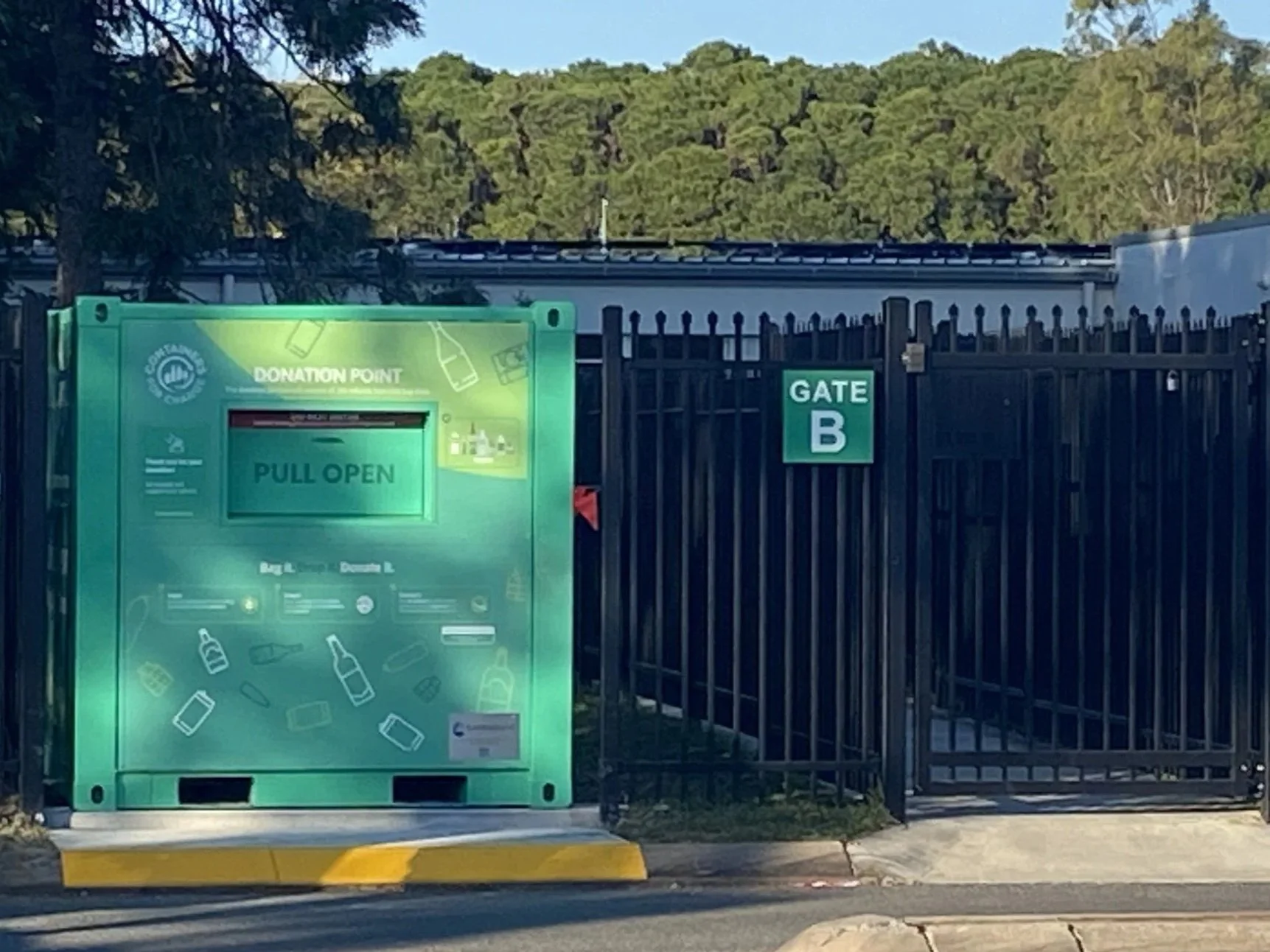Thriving Together: Our Updates
We believe that every small change has ripple effects. This is where we share what’s working—as schools recover resources, embed functional sustainability methods, win awards, and show us that education can be part of the solution. Let these updates spark something in your school, inspire your team, and show how a better future begins today.
Queensland Schools only … Exciting news from the P&C Association of Queensland and Container Exchange! We're thrilled to announce a fantastic opportunity for our schools to lead the way in sustainability and generate additional valuable funds for your P&C. In the first half of 2026, the P&C Association will be releasing 20 regional Donation Stations to schools in the SE Corner, and your school could be on the priority list! Apply by Feb 13!
At Climate Action Schools, we believe in empowering the next generation to drive meaningful environmental change. We're incredibly proud of the impact our program is making, and it's truly heartening to see that impact recognised on a national stage! This recognition isn't just for us; it's a testament to the power of collaboration and the incredible commitment of our partners.
The Lean Sensei: Smarter solutions for lasting change.
Thanks to our partners at The Industry Factory and Neuro Group, we’re excited to share access to a 2 week free trial of The Lean Sensei. This innovative AI coach blends LEAN principles and the behavioural science insights from the NeuroPower framework to empower Climate Action Schools and industry partners, helping them embed sustainable practices and drive professional growth. Start your 2-week FREE trial here:https://neuroplus.ai/passports/lean-sensei-cas-2025
As ESG becomes a core responsibility for organisations, many industries are looking for meaningful ways to create environmental and social impact — not just report on it.
That’s where Climate Action Schools comes in.
Partnering with a school gives industry a direct line to real, measurable ESG outcomes while supporting local communities and the next generation of workers.
In today's rapidly evolving world, the call for sustainability resonates across every sector. Whether you're shaping young minds in the classroom, maintaining vital spaces, or steering an enterprise, understanding, and implementing sustainable practices is no longer optional – it's essential for our collective future and individual professional growth.
Many of us are passionate about sustainability but sometimes translating that passion into tangible action or effective teaching can feel challenging.
To our incredible schools, valued industry partners, dedicated volunteers, visionary leaders, and passionate student ambassadors – Welcome!
This newsletter is a testament to our collective commitment, designed to inspire and empower every step of your sustainability journey.
At Climate Action Schools, we live our vision daily: Redesigning Success: People + planet; thriving together.
Australia's new Circular Economy Framework is here, and it's a game-changer. It envisions a future where waste is a resource, value is kept in play, and our economy thrives in harmony with the planet. But how do we get there? At Climate Action Schools, we believe the journey starts in our schools, with our students.
Imagine a school where 75% of resources are diverted from landfill, where recycling is decontaminated, and organics are recovered daily. This isn't a dream; it's the reality in our partner schools, thanks to our unique program.
In the quest for a more sustainable future, technology often promises revolutionary solutions. Artificial intelligence (AI) is frequently touted as the answer to many of our environmental challenges, including improving efficiency in resource recovery and recycling facilities. However, when it comes to the intricate task of sorting materials on a picking line, human workers currently hold a significant advantage. What's more, the very AI systems designed to help us often come with a hidden environmental cost: vast amounts of water.
In the journey towards Industry 6.0, true leadership means integrating sustainability into the very core of your business. We want to give a massive shout-out to Cummins, our foundation partner, who exemplifies this vision and has been instrumental in the inception and growth of Climate Action Schools.
At Climate Action Schools, we believe in fostering a holistic approach to sustainability, understanding that our local actions contribute to a global vision. This vision extends beyond the classroom, embracing a collaborative 'ecosystem' where industry, community, and education unite. Recently, Woodridge State High School became a vibrant example of this philosophy, hosting a special working bee that showcased the power of collective effort in driving Industry 6.0 sustainability.
We all love a good doughnut, right? But what if a doughnut could also be a blueprint for a thriving, sustainable future? Enter "Donut Economics" – a revolutionary idea that's changing how we think about our economy and our planet.
Developed by economist Kate Raworth, Donut Economics isn't about cutting back; it's about finding a "sweet spot" where everyone can flourish without trashing our home.
So, What's in the Donut?
As the Business Manager at Woodridge State High School, I am always on the lookout to save operational cost for the school and to help facilitate student learning in a practical, real world experience. I want to share our positive experience with a program called Climate Action Schools.
Like many schools, managing waste effectively and controlling associated costs has always been a challenge. We recently implemented the Climate Action Schools program, which provides a practical, system-based approach to resource recovery right here at school.













Exciting news! Our "Climate Action Schools" Queensland roadshow, proudly partnered with industry leader Cummins, is hitting the road and heading your way! We're bringing a unique opportunity to transform your school into a beacon of sustainability, and we can't wait to share it with you.